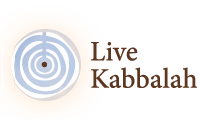This Parasha tells the story of the leader of the twelve tribes of Israel that were sent to “explore the land of Canaan” (Numbers 13:1). This story raises many questions.
The Zohar explains that our world consists of two forces: the male force, the energy of loving, kindness and sharing, and the female force, the energy of receiving and judgment. One of the male force symbols is the Sun that always shines, emanating light and warmth, symbolizing unlimited giving. Hence is the comparison to Moses, who gave himself totally to his people and led them for forty years in the desert. On the other hand there is the moon that symbolizes the female force, which has no light of its own and all its light is a reflection of the sun’s light.
Since we do not have light of our own, we, mankind, can be compare with the moon.
The Zohar explains that as long as the Israelites wondered in the desert it was Moses’ role to light and shine. However, from the moment they have entered the Promised Land it was their time to shine and that is why Moses could not have entered with them, sine as long as the sun shines no other body could shine as well.
On our Parasha Moses is checking if his people are ready to shine, and that is why it is said “Shelah Lekha” (Lekha means “for you”), in singular, meaning that the way Moses would know if he can enter The Promissed Land is to send them “to explore the land “… Is there any tree or not?” (Numbers 13:20) – It should have written “trees” but that was meant to teach us that Moses wanted to know whether the Israelites could connect to the awareness of the Tree of Life – an awareness that belongs to winners, people who are able to shine even in the darkest moments.
However, while our Parasha opens with the words “Send some men to tour the land…”, eventually it is known as the ‘Parasha of the Spies’ and not of the ‘Tourists’ or ‘Explorers’. So what have happened or changed? It seems that from the moment they have entered the country the spies, who were the leaders of the twelve tribes, understood the size of the task they were facing – inhabit the country – and that they could not do that on their own and without Moses. The Zohar also says that they might have also understood that in the new situation they will not be able to keep their positions as presidents anymore. And from that moment all they were looking for was excuses not to enter the Promised Land (Similarly, the moment we stop liking someone anymore we tend to look for his flaws, even in things we liked until then). And that is how they turned from “tourists” who come to explore and experience a new place into “spies” who just looking to find flaws.
In any given moment in life we have a choice how to experience the trip we are having in God’s world. Whether to have the spy awareness (the Tree of Knowledge), to look for flaws and constantly complain, or whether to have the tourist awareness (the Tree of Life) – to try and enjoy every experience we have and to make the most out of it. If we look carefully around us, those who have the tourist awareness are the ones who succeed in life and achieve material and spiritual accomplishments, and those who have the spy awareness tend to fail and blame the whole world for it, and always find flaws in people around them.
The ten spies see everything in the Promised Land as a proof to their defeatist outlook while on the other hand Caleb and Joshua said that the land was “… flowing with milk and honey” (Numbers 14:8) and if God brought us so far than there is probably nothing to worry about.
However, the question is how could those different approaches – “land of milk and honey” and a land that “devours those living in it” – exist at the same time? And the answer lies in the words of the spies. When they return to the camp they say: “We saw the Nephilim there (the descendants of Anak – Giant, come from the Nephilim). We seemed like grasshoppers in our own eyes, and we looked the same to them”. Meaning, that the people around us perceive us according the way we perceive ourselves.
The great lesson of this Parasha is that we have a choice and that we need to fight our inner “spy awareness”. We need to constantly tell ourselves that wherever we are, or whoever we are with, this is the Promised Land, the land of milk and honey, and that everything we are looking for can be found right here.
To listen to the weekly Zohar Study click here
For additional study on Shelakh Lekha and other portions enter Live Kabbalah University
